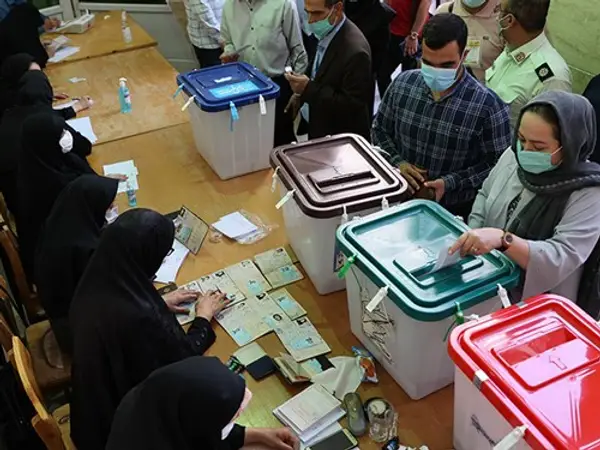Although reports say around 40,000 people have registered as candidates for the 290 seats of the Iranian Parliament (Majles), no one knows how accurate the figure is.
Online registration for the upcoming parliamentary elections, scheduled for March 1, 2024, was conducted discreetly. The registration website is not accessible to the public, leaving candidates' identities concealed.
Several prominent figures, including former Presidents Mohammad Khatami, Mahmoud Ahmadinejad, and Hassan Rouhani, as well as former Majles Speakers Ali Akbar Nateq Nouri, Gholam Ali Haddad Adel, and Ali Larijani, have announced their decision not to run in the election.
While Rouhani, Ahmadinejad, and Larijani plan to support like-minded candidates, Khatami seems disinterested in the election, possibly stemming from previous frustrations with reformist candidates being disqualified by the regime in past elections. Some even interpret his lack of interest as a sign of boycotting the election altogether.
Some reformists, most notably women's rights activist Faezeh Hashemi has openly boycotted the election and several other reformists have said they might consider a boycott if the situation of vetting and approval of candidates remains as biased and restrictive as before. Some political figures such as the former mayor of Tehran Gholamhossein Karbaschi have called on reformists not to be shy or intimidated and to officially declare their boycott.
Centrist politician Mohammad Namazi says the upcoming election will offer no surprise as he cannot see any sign of a competitive plebiscite ahead. According to Nameh News, political activity concerning the upcoming election appears to be at a minimum.
Namazi, armed with insider knowledge, emphasized that while approximately 40,000 individuals have submitted their candidacies, there is a noticeable absence of prominent political figures among them. Furthermore, he highlighted the persistence of rigorous restrictions and filters imposed on candidates through the vetting process, which is overseen by the Guardian Council under Supreme Leader Ali Khamenei's control. Despite the active involvement of certain conservative factions, Namazi noted a lack of enthusiasm among other politicians and the general public, especially in major urban centers. He found it peculiar that there is no discernible government-driven momentum or excitement surrounding the forthcoming elections.
Most political parties seem to lack a well-defined strategy for the upcoming elections. Hossein Marashi, a senior member of the centrist Executives of Construction, was reported as stating that his party intends to withhold its decision until the Guardian Council releases the list of approved candidates. Only then will they consider endorsing a select number of candidates.
Marashi has also suggested that the government holds the key to whether the upcoming elections will be competitive. If the government chooses to extend the registration period and permits broader participation, competitive elections could become a possibility. In such a scenario, political parties may take the opportunity to present their platforms and agendas to persuade the public to participate.
Meanwhile, conservative politician and Islamic Coalition Party member Hamid Reza Taraqqi admitted in an interview that a large number of Iranians did not know that this is an election year in Iran. However, he suggested that lack of public interest is an indication that Iranians are overwhelmed by the news of the war in Gaza. It seems he overlooked the possibility that voters' reluctance and indifference might be a consequence of the government's apathy toward the demands expressed by the people in various nationwide protests since 2018.
The only part of the Iranian political spectrum which is happy about the people's indifference is the ultraconservative Paydari Party which has the upper hand in the current Majles with scores of young but otherwise inexperienced lawmakers who now have a proven record of inefficiency and lack of interest in the people's demands. They know that like the previous election, they can easily win the parliament in a low-turnout election.
Rumor has it that Paydari has registered the candidacy of a couple of its heavyweights such as Party Leader Sadeq Mahsouli and former nuclear negotiator Saeed Jalili. If this is true, it shows that Paydari is planning to further strengthen its foothold in the parliament and Iran's next government which is to be elected two years after the Majles election.
According to unofficial reports on candidate registrations, around 40 percent of candidates are between 30 and 40 years old, 36 percent are aged 40 to 50, while the remaining candidates fall in the 50 to 75 age range. This trend reflects the ongoing shift toward a younger generation of politicians in the Majles, many of whom may lack a deep understanding of the clerical regime’s founding promises regarding the welfare, freedom, and independence of Iran.
